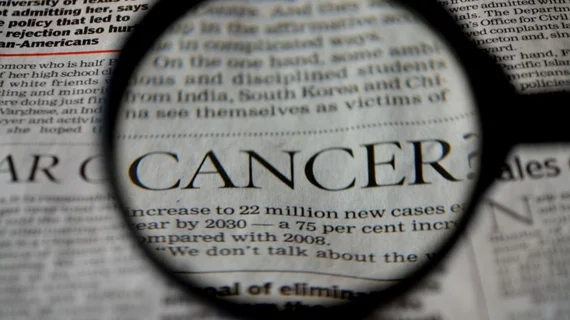Expanding health insurance produced more traffic at radiology practices, less late-stage cancer
Expanding health insurance in Massachusetts led to a lower number of late-stage cancer diagnoses and, if extrapolated across the U.S, could catch thousands of cases before they snowball into untreatable stages.
Researchers from Pitt Public Health recently made this discovery after scouring through data following the Bay State’s expansion of coverage in 2006. They reported a 7% decline in the likelihood of being diagnosed with advanced colorectal cancer when compared to states without such insurance changes, according to a new study in the February issue of Medical Care.
Lead author Lindsay Sabik, PhD, and colleagues believe the drop is likely tied to increased access to the diagnostics screening services delivered by radiologists and other providers. And they believe these results may be present on a larger scale, following implementation of Obamacare in 2010.
“This is exciting because key elements of the Affordable Care Act parallel those of the Massachusetts reform,” Sabik, an associate professor with Pitt’s Department of Health Policy and Management, said in a statement. “While data on the long-term impacts are still emerging, we expect that early cancer diagnosis will likely be one of the major success stories of national health insurance reform.”
Colorectal cancer is the second-leading cause of cancer death across the country, but has a 90% survival rate when treated early. Experts recommend that everyone over the age of 50 receive a routine screening for the disease, but there’s a coverage gap for those who don’t yet qualify for Medicare.
Researchers pinpointed all Massachusetts patients ages 50 to 64 who were diagnosed with breast or colorectal cancer between 2001 and 2013. They homed in on those types in the state’s cancer registry because they’re common, have routine screening recommendations and high survival rates if caught early, according to the study. Sabik and colleagues also weighed their data against similar information in other states that did not expand coverage.
They found a measurable dip in late-stage colorectal cancer, but not the same among those with breast tumors. Researchers hypothesized that well-established programs were already capturing such patients early, before their condition worsened.
“We believe that those programs were already catching people who otherwise might not have been screened due to insurance status, which is good news,” Sabik added. “It demonstrates that those safety net programs appear to work.

